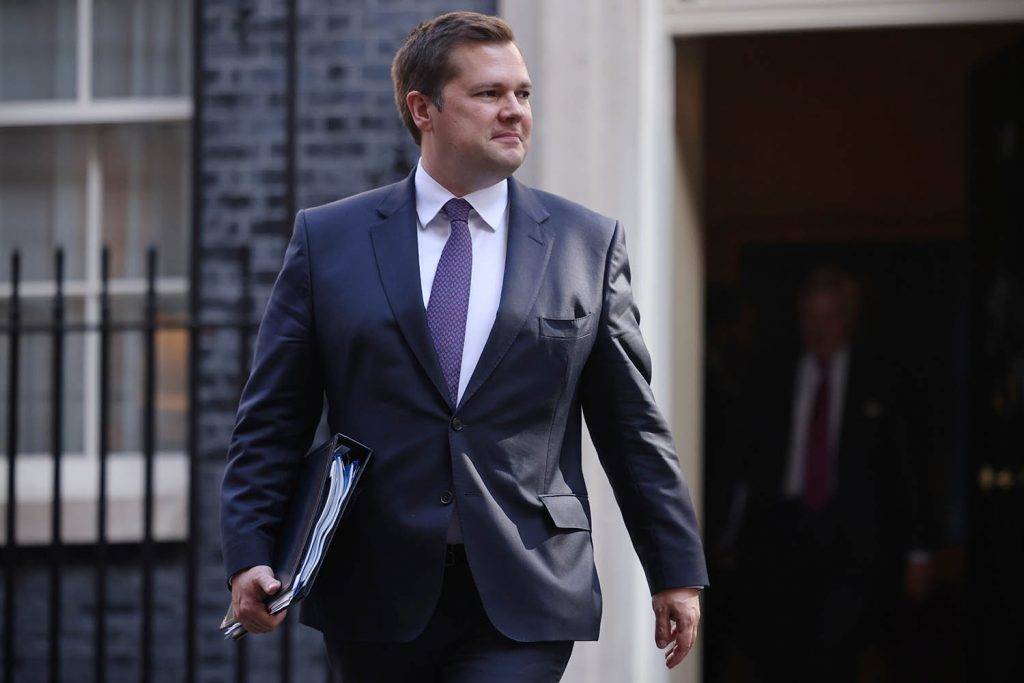
The Conservative leadership contender Robert Jenrick has accepted £75,000 in donations from an indebted company, which received an undisclosed lump sum from an untraceable BVI-listed entity. The Spott Fitness has no employees, has never made a profit, and its most recent accounts show it owes £332,000, raising questions about the ultimate source of the funds. In February this year the company accepted a loan from Centrovalli, a firm based in Tortola in the British Virgin Islands. The amount borrowed has not been declared, but typically these corporate loans are made against assets. In this case, it is unclear what assets the company has.
The documents state that a company called Saffron Group acted as a director for Centrovalli. Saffron Group is a high-end tax specialist that offers services for clients in Switzerland, the BVI, Hong Kong and Israel.
Moshe Freed, one of the principals at Saffron Group’s parent company Intertax, is named as the sole director of a now-defunct firm also called Centrovalli Ltd, which is registered in the UK.
When approached, Freed told Tortoise he knew “nothing about this”. He declined to comment further.
Jenrick, currently the frontrunner to become the next leader of the Conservative Party, accepted three separate donations of £25,000 each from The Spott Fitness as part of his leadership campaign on 2, 22 and 23 July. The company is his biggest donor so far this parliament.
Its online presence does not appear to have been updated in the past two years and its founder, Benjamin Hodson, ceased to be a person with significant control (PSC) last summer, although he remains listed as a director. Mark Dembovksy, a lawyer, is listed as both director and PSC.
Jenrick did not respond to requests for comment and neither did Hodson or Dembovsky.
The Spott Fitness said: "We’re still at the growth stage of our business but we measure success based on health outcomes not just simple profit versus loss accounting. We’re excited to support leaders like Robert Jenrick who share our vision of businesses having purpose beyond just shareholder profit.” Tortoise understands the firm is a permissible donor under electoral law.
Steve Goodrich, head of research and investigations at Transparency International UK, told Tortoise: “When companies fund politicians via offshore loans it raises serious questions about the money's provenance.
“Electoral law was supposed to only allow businesses with a substantive UK presence to make political contributions, yet examples like this show it permits anonymous cash from anywhere in the world into our democracy.
“All leadership contenders should be checking their donors and the likely source of funds before accepting such generous support. The UK government's committed to strengthening the rules around political donations, which should include this shell company loophole.”
Jenrick has already had to update his register of interests in recent months after freelance investigative journalist Peter Geoghegan revealed that the former minister had accepted donations from a dormant company. The company, Firefly Digital Limited, had filed dormant accounts for the past seven years and had reported just £1 in assets.
Jenrick is one of four Conservative MPs still vying to become leader of the opposition. He has held several ministerial roles, including Housing and Communities Secretary, during which time he approved a £1 billion luxury housing development in London proposed by Richard Desmond, a Conservative Party donor and former media mogul.
After sitting beside Desmond at a fundraising dinner, Jenrick overruled the local authority in question, Tower Hamlets in east London, as well as the government planning inspectorate, to give permission for the development. Fast-tracking the scheme also meant the billionaire avoided new council community charges, which would have cost him about £45 million.
Desmond donated £12,000 to the party a fortnight after permission for the development was granted.








